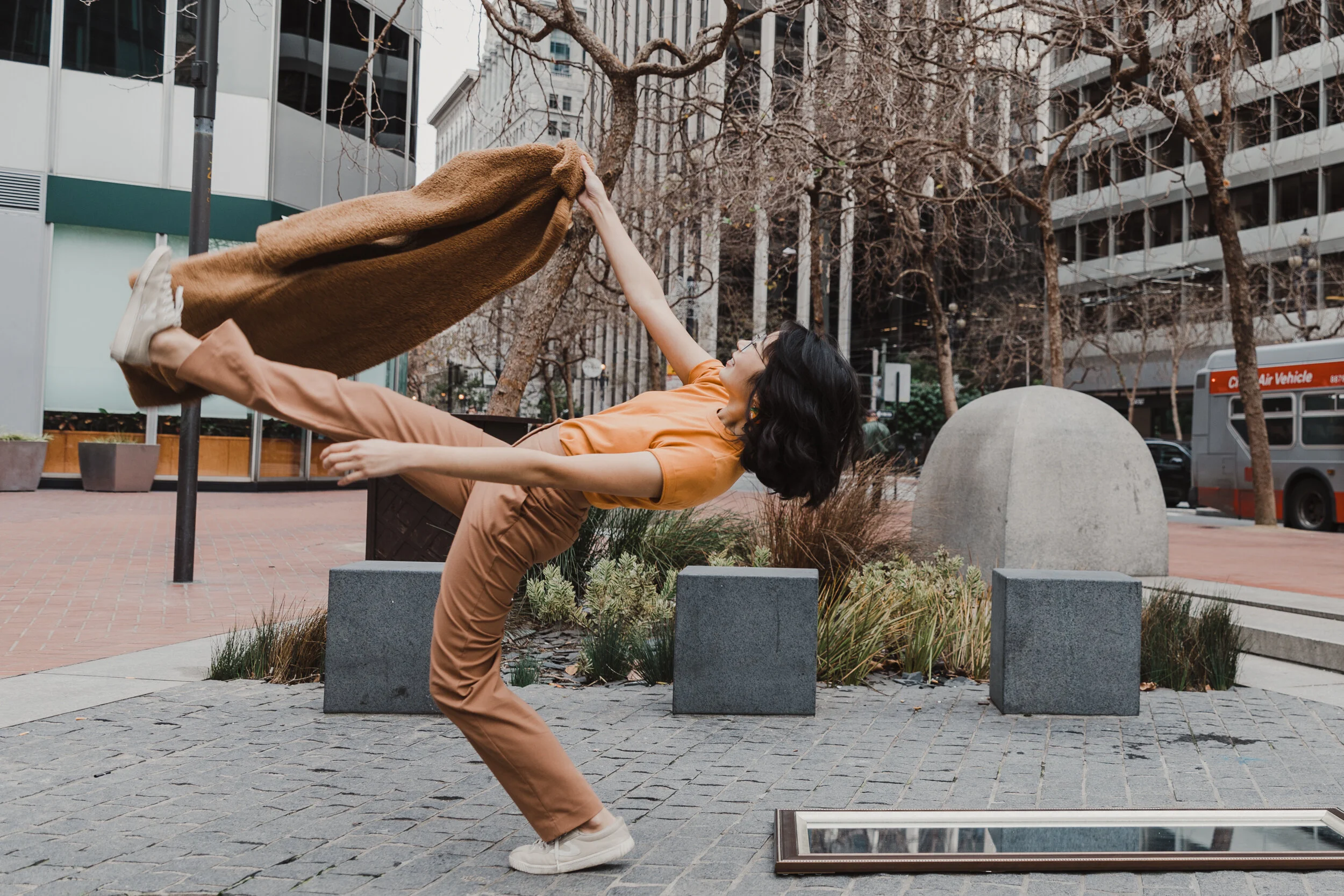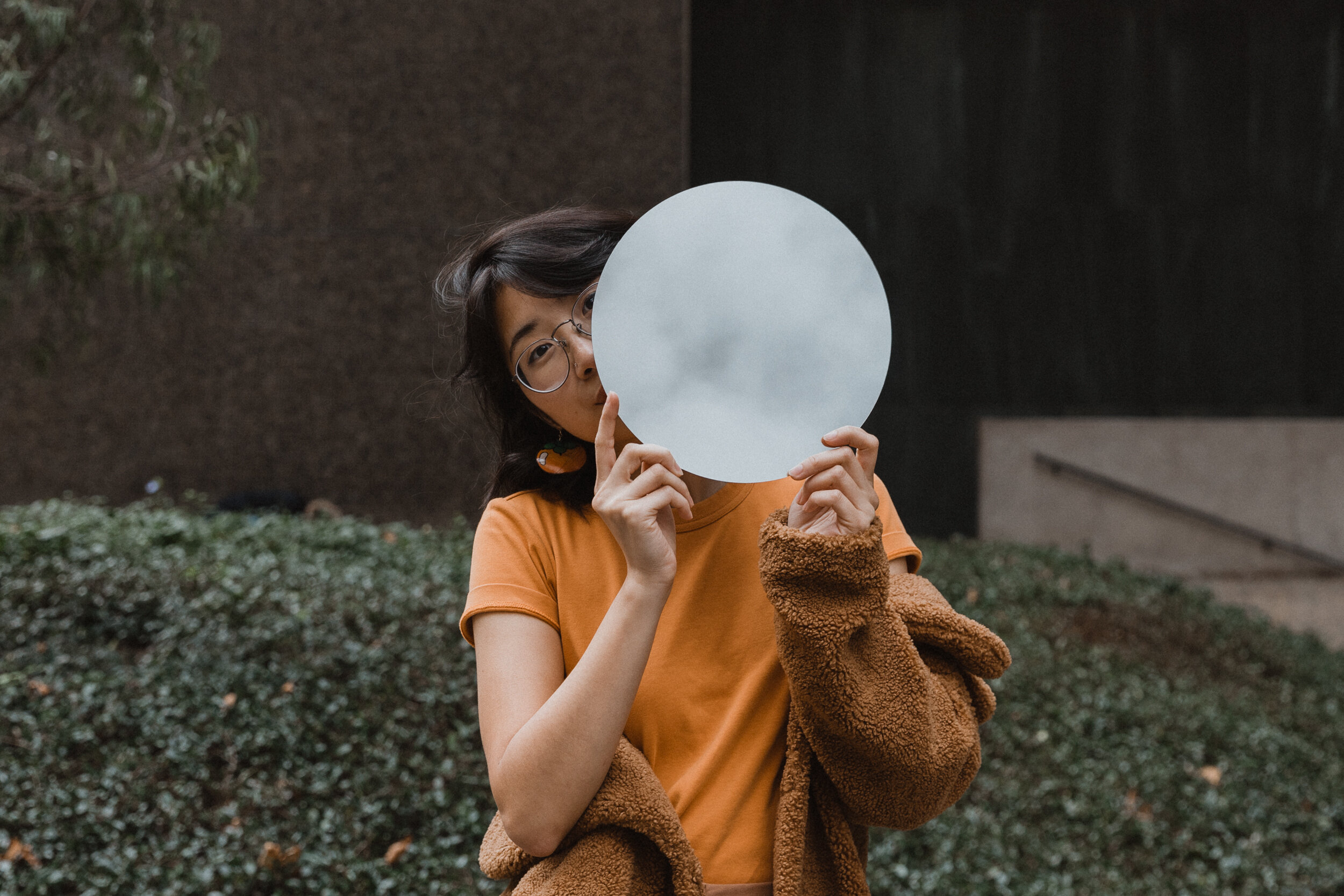THE JOURNEY TO SELF-TRUST
the complexities of growing up with immigrant parents
TIFFANY TRIEU
vietnamese american
Many Asian Americans navigate the dueling realities of growing up with immigrant parents while living in American society. How are members of this vast community shaped by experiences that may be universal, but are ultimately specific to personal circumstance? How do they carve out their own identity within the two different cultures? What microaggressions do they face, and what lessons have they had to learn? Before arriving at her present day self, she grew up struggling to identify the difference between her parents’ values and the values presented to her in Western culture and media. Now, experiencing a unique manifestation from her journey of self-discovery, she recognizes the most important value of her identity is her own self-trust.
Q: What do you feel is the biggest challenge you've had to overcome with your cultural identity?
A: It took me a while to celebrate my Vietnamese identity. I never had a problem being Asian because I grew up around lots of Asians. Back then, I did wonder why it was “important” to embrace my Asianness (especially seeing one of my friends who was adamant about his Taiwanese Club). I would think, “Isn’t it enough that we live in a mostly Asian community?”
It wasn’t until college when I *accidentally* joined the Vietnamese Student Association. It was then I realized my embarrassment around speaking Vietnamese with others my age and how little I knew about my own culture. After taking my first Asian American Studies class, I soon learned how to describe what I was feeling - internalized racism.
Present day, my younger brother and I openly embrace our Vietnameseness through his Viet-Chinese food pop-up called Tùm Lum Tùm La. Beyond that, I am beginning to have conversations with my parents around their Vietnam War refugee stories and to see them as humans beyond the narrative of suffering and sacrifice. That may be the biggest hurdle to jump over together.
Q: Can you tell me more about where you grew up and what core values your parents tried to instill in you?
A: I grew up in Fremont, CA. You could call it the suburbs of Silicon Valley. Predominantly East Asian and South Asian community. I joke with friends that if you want to start a financial viable business in Fremont, open up a tutoring center named after an Ivy League, like Berkeley Academy. Really though, my parents did instill the importance of academics in me. They never pressured me to pursue a certain career. But in Fremont, there definitely was an underlying opinion of which routes were possible and which were not.
My mom instilled in me to always be curious and learn whatever I could. I’m sure part of that is from her bright personality, but another part (that I would come to realize as an adult) came from the survival mindset she had to adopt as an immigrant, too. “Learn the newest skill, so they’ll keep you as an employee,” is what she would share with me. My dad shared with me his work ethic (I also would dub both my parents as workaholics), but as I’m getting older, I’m noticing his playful side, too. He loves to play with drones and learn new things for fun. I’m thankful both my parents encouraged me to stay curious.
Q: Where are your parents from?
A: My parents are from Vietnam, refugees from the Vietnam War. They came to the states separately and met in Portland, Oregon. I have yet to visit Vietnam with them (and visit Vietnam for the first time ever, actually!). I’m really looking forward to the day they can point out the places they grew up around and places they loved to eat at. Food is a big part of my family.
Q: Growing up, how did you navigate being raised with Vietnamese culture while being exposed to western culture?
A: My brother and I spent a lot of our time as kids arguing with our parents about why our family functioned so differently from the ones we saw on screen. Growing up in a community of Asian Americans, I felt like I could share that similar experience with my friends. Bonding over the gap we felt between our Asian Americanness and our parents’ Asianness.
Trying to understand what was ours and what was theirs.
Q: How did your need for independence continue to manifest into adulthood?
A: When I was in grade school, many of my choices were a form of quietly rebelling against my parents. Looking back, that was liberating for the time being, but my choices were still very much influenced by my parents. In college, I chose to major in managerial economics, as well as, design. I genuinely enjoyed both, but whenever I spoke to my parents about how school was - I would definitely play up the management classes I was learning (who can relate?).
After graduating college, getting my first job, then finally deciding to leave it - that was a decision I felt like I made on my own. I had done research, begun the inner work, and asked myself, “What do I want out of this situation?” even if that meant making some people I truly cared about in life - unhappy.
When I left my job, that’s when I came across a book called Self-Parenting: A Guide to Inner Conversations which put everything I was experiencing into words. The internal conflict I faced while making decisions for myself. How to differentiate my parents’ values and choices from my own. My true search for independence did not come from shunning my upbringing and rejecting that part of myself. Instead, the true feeling of independence came from understanding where I come from, and in trusting my ability to move forward from there.
Q: What was the moment you realized you consciously chose self-trust?
A: It was a series of small choices, but I’ll build off my experience of leaving my job. You know that feeling when you look through your old journal (or old Instagram posts these days) and you’re like, “DAMN. I really do know myself.” Weeks before leaving my job, I wrote a note to myself on my iPhone:
3 things I allow myself to do:
Find my creative voice
Learn things because I’m curious, not because I should
Make stuff with my hands
The same 3 things drive me today: live with self-trust (manifesting in my creative voice), curiosity, and play. When I decided to step into these three things, that’s when I began calling myself an inner child advocate, own the way I show up in spaces, and live the way I live today.
Q: How has this realization helped you to coach and create a safe space for children of immigrants?
A: When we become aware of our upbringing and make the unconscious narratives conscious, we get to make choices for ourselves. As a child of immigrants, my parents have gone through tremendous trauma, have habits and ways of living that helped them survive back then, but are no longer needed now.
Once I knew that I could differentiate the voices inside me, inner parent and inner child, I was able to make choices that feel good to me. I truly believe the world is a happier place when people can own the choices they make. Creating space for people to trust themselves means creating space for people to live in a way that nourishes themselves wholeheartedly.






